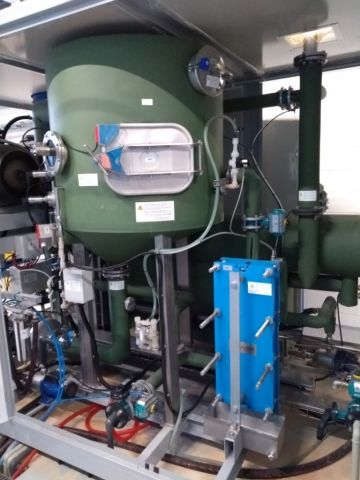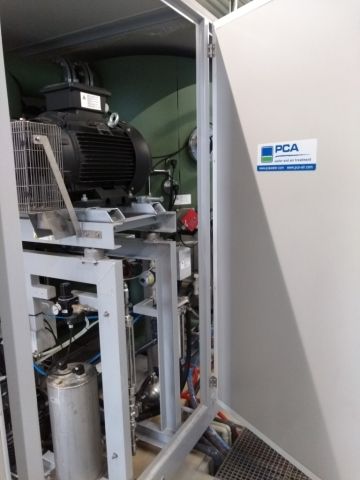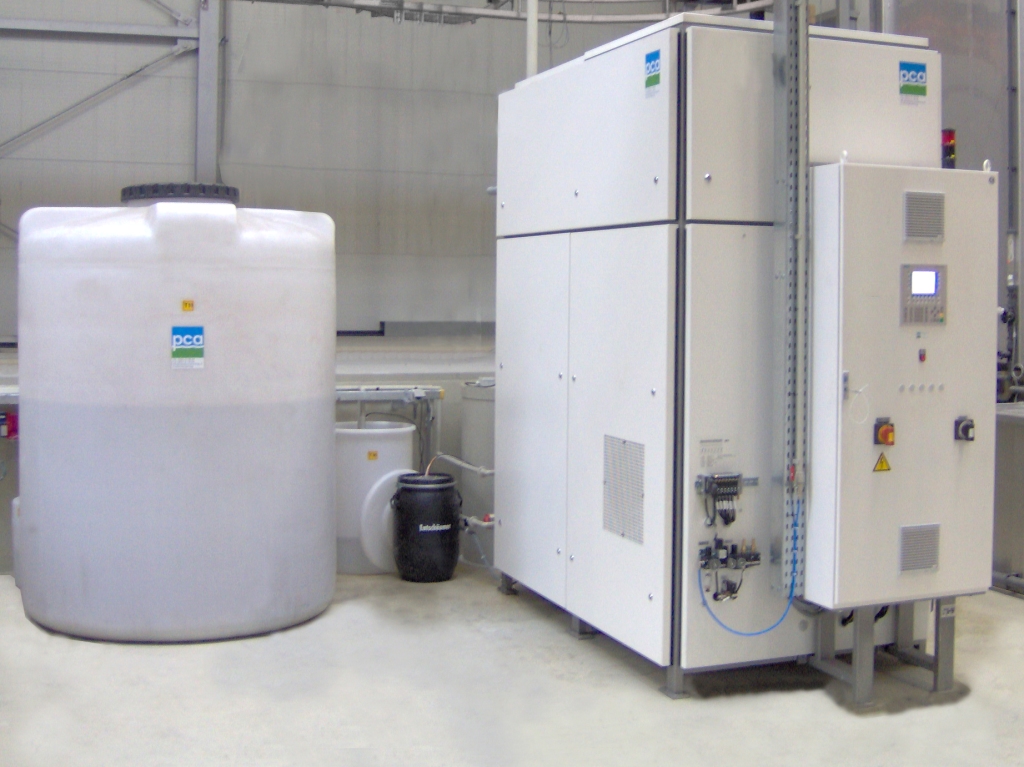Evaporator
An evaporator ensures one can reuse 90 to 95% of one’s waste water. PCA offers evaporators in all shapes and sizes and for many different sectors. In many cases an evaporator can be the sustainable solution for water reuse.
Operation of an evaporator
An evaporator ensures that the waste water first evaporates and then condenses again. The pollution in the wastewater does not evaporate and stays behind. In this way you can obtain almost pure water, which can then be reused in the production process.
In addition to the purified water (called distillate), there is also a concentrate flow, which contains all the pollution. This must be disposed of for external processing. Usually this only contains 5 to 10 % of the processed wastewater.
Advantages of an evaporator
An evaporator makes it possible to purify wastewater so it can be reused. This is the great advantage over end-of-pipe techniques, such as classical physical-chemical purification.
But an evaporator has even more advantages:
- Compact: takes up very little space
- Autonomous: an evaporator operates autonomously
- Zero loss: by installing a vacuum evaporator, the company can often obtain a "zero loss" status
- Less purchase of fresh water
- Mostly no wastewater to discharge
- Little follow-up required
- Few chemicals needed
So you can reuse 90 to 95% of the wastewater.
Evaporators are often used in the following industries
- Surface treatment: the wastewater from the tanks can be purified and then reused in the pre-treatment line (immersion or spray tunnel) (for aluminium, steel, galvano, ...).
- Chemical sector: often waste streams or cleaning fluids are used which can be purified with an evaporator.
- Biogas plants: In many cases, the digestate can be condensed with an evaporator and thanks to the usually present steam, an evaporator with external heat supply can be chosen.
- Food industry: purification of rinse water or cleaning water.
- Waste & landfill sites: often the leachate water needs to be treated thoroughly. For this you can use an evaporator.
- Battery production: during the production of batteries, a considerable stream of waste water containing sodium sulphate is released. This can be purified with an evaporator, allowing it to be reused.
- Metal sector: at many metal processing companies, the coolant needs to be refreshed on a regular basis. Currently, this is often discharged externally, but with a (small) evaporator this can usually be purified.
- Other sectors
- Paper production
- Textile industry
- Other: Do you think an evaporator would be useful in your sector? Do not hesitate to contact our specialists!
Concentration of flows
An alternative application of vacuum evaporators is the increase of concentration of certain streams. Sometimes a certain stream comes out of the production process and doesn't contain the desired concentration. If the concentration is too high, it can simply be diluted. If the concentration is too low, it becomes a lot more difficult. A vacuum evaporator can certainly provide a solution for this. The evaporator can extract water from the liquid and thus increase the concentration. Moreover, almost only water gets extracted so there is no loss of product.
Types of evaporators
There are different types of vacuum evaporators and a lot of aspects should be taken into account when choosing the most suitable installation. More info can be found here.
PCA can help you select the suitable evaporator, both in design and construction of the installation. Moreover, we are also responsible for the follow-up and maintenance of the installation.



